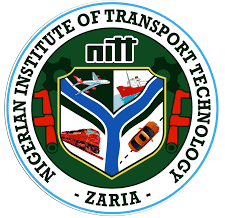 Oritsegbubemi Omatseyin
Oritsegbubemi Omatseyin
Lagos — The Director-General of the Nigerian Institute of Transport Technology, NITT, Zaria, Dr. Alhaji Bayero, paid a courtesy visit to the Director-General of the National Automotive Design and Development Council, NADDC, Chief Joseph Oluwemimo Osanipin.
The visit aimed to advance synergy between NITT and NADDC in supporting the Federal Government’s efforts toward the adoption and sustainability of Compressed Natural Gas, CNG, and Electric Vehicle, EV, technologies across Nigeria. He emphasized collaboration in areas such as Technician Certification, Training Standardization, and Policy Enforcement to ensure quality, safety, and manpower readiness in the ongoing energy transition.
He commended NADDC for its leadership in driving Nigeria’s automotive industry toward a cleaner and more sustainable future, particularly through the development of National Occupational Standards for CNG conversion and EV maintenance.
Highlighting NITT’s role as Nigeria’s apex transport and logistics training and research institute, Dr. Bayero reaffirmed the Institute’s commitment to manpower development, public enlightenment, and the establishment of training centers across all geopolitical zones to support the Presidential CNG Initiative.
He also revealed that NITT has developed a Certificate Verification Portal for CNG technicians, ensuring that all conversions are performed by certified professionals, thereby enhancing regulatory enforcement, public confidence, and safety.
Dr. Bayero proposed a Memorandum of Understanding, MoU, between NITT and NADDC to formalize cooperation in areas such as standardization, joint capacity building, and data-driven policy support.
Responding, NADDC’s Director-General, Chief Joseph Oluwemimo Osanipin, welcomed the collaboration, stressing that joint efforts between both agencies are vital to advancing the automotive and transport sectors and achieving Nigeria’s vision for clean, safe, and sustainable mobility.
The meeting concluded with a shared commitment by both institutions to formalize collaboration through a Memorandum of Understanding, MoU, and to align efforts toward promoting cleaner and more sustainable transport technologies in Nigeria.
Both Agencies expressed optimism that the partnership would strengthen capacity development, enhance regulatory enforcement, and support Nigeria’s transition to clean energy vehicle technologies.
This article was originally posted at sweetcrudereports.com
Be the first to comment